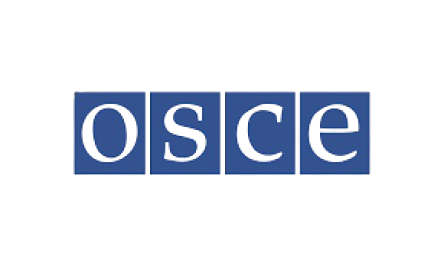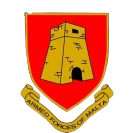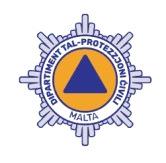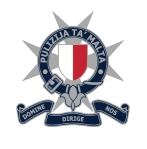International Networks
The Academy for Disciplined Forces gives internationalisation a recognisable and prominent position in the education and knowledge services that it offers. Cross-border operations for the army, police and civil protection are examples of subjects, which are added to the curriculum of the Academy.
The Disciplined Forces in Malta form part of international networks that enrich the skills and knowledge frameworks in the Academy’s education and training programmes. The work of the Disciplined Forces is intertwined with events in the international environment, in Europe and beyond.
Education and Training Networks
The Academy for Disciplined Forces also works with partners in education networks. The international collaboration contributes towards a higher quality level in the learning environment the Academy aspires to develop. The partnerships focus on the exchange of knowledge and provide an international dimension to training.

European Union Agency for Law
Enforcement Training
Dedicated to developing, implement and coordinate training for law enforcement officials in the European Member States. CEPOL brings together a network of education and training institutes for law enforcement officials in EU Member Countries and supports them by providing training on law enforcement cooperation, security priorities, and information exchange. CEPOL also works with international organisations, EU bodies, and third countries to ensure security threats are tackled with a collective response.

Association of European Police
Colleges
(European Union Agency for Law Enforcement Training) – dedicated to developing, implement and coordinate training for law enforcement officials in the European Member States. CEPOL brings together a network of education and training institutes for law enforcement officials in EU Member Countries and supports them by providing training on law enforcement cooperation, security priorities, and information exchange. CEPOL also works with international organisations, EU bodies, and third countries to ensure security threats are tackled with a collective response.
Disciplined Forces Networks

OSCE
The Organisation for Security and Co-operation in Europe (OSCE) spans different Disciplined Forces on a global scale encompassing politico-military, economic and environmental, and human aspects. It addresses security-related concerns, including arms control, confidence- and security-building measures, human rights, democratization, national minorities, counter-terrorism, economic and environmental activities and policing strategies.

Armed Forces of Malta
The International Affairs Branch is responsible for bi-lateral and multi-lateral cooperation involving among other matters, the EU Common Security and Defence Policy (CSDP), Organisation for the Security and Cooperation in Europe (OSCE), 5+5 Defence Initiative, NATO Partnership for Peace, military to military relations and supporting Maltese participation in overseas crisis management operations.

Civil Protection Department
The Civil Protection Department forms part of the EU Civil Protection Mechanism, which was established in 2001 and fosters cooperation among national civil protection authorities across Europe. Civil protection assistance consists of governmental aid delivered in the immediate aftermath of a disaster. It can take the form of in-kind assistance, deployment of specially equipped teams, or assessment and coordination by experts sent to the field. Yet, disasters know no borders. A well-coordinated response at a European level is necessary to avoid duplication of relief efforts and ensure that assistance meets the real needs of the affected region. The Mechanism was set up to enable coordinated assistance from the participating states to victims of natural and man-made disasters in Europe and elsewhere. The operational hub of the Mechanism is the Emergency Response Coordination Centre (ERCC), which monitors emergencies around the globe 24/7, and coordinates the response of the participating countries in case of a crisis. Thanks to the participating states’ pre-positioned and self-sufficient civil protection modules, civil protection teams are ready to intervene at short notice both within and outside the EU. They undertake specialised tasks such as search and rescue, aerial forest fire fighting, advanced medical posts and more.

Corradino Correction Facility
CCF works closely with the Norwegian Correctional Service Directorate’s International Cooperation Department. An operational system based on incentives and earned privileges has been developed for young offenders and will be implemented in the new Centre of Residential Restorative Services (CoRRS). Correctional officers working with young inmates have undergone training through the same collaborative project. CCF collaborates with the United Nations Office on Drugs and Crime, California Department of Corrections, Federal Bureau of Prisons, Prison Department of Malaysia and the International Institute for Justice and the Rule of Law in order to establish a networking capability of sharing ideas and concerns to improve the overall security measures in prisons around the world. Knowledge gained from international networks enables CCF to minimize and eliminate threats before they happen. It also provides the ability to focus efforts on specific threat groups which otherwise would compromise security effectiveness.

Malta Police Force
The International Relations Unit is responsible for cooperative networks and local operations for Interpol, Europol, Frontex and SIRENE. Interpol’s function is to enable police forces around the globe to work together through an infrastructure of technological and operational support. Each state operating the Schengen Information System (SIS) has set up a national SIRENE Bureau that is responsible for any additional information exchange and coordination of activities connected to alerts on state entries. Europol is the European Union’s agency for law enforcement, assisting the EU Member States in their fight against serious international crime and terrorism.
